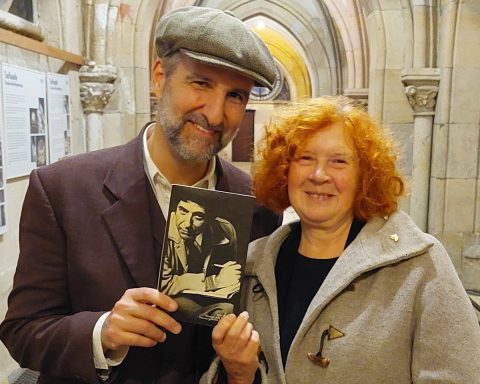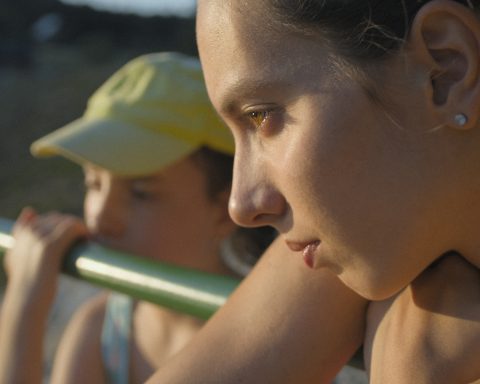After waiting way too long to publish the first part, now I took another unholy stretch of time to find the right words for the final five in our top ten films of 2020. Here we have an assortment of true diamonds, some rougher than others, that really stood out last year and still rattle around in my mind on a regular basis. Tragically, I only got to watch one of them in an actual movie theatre.
While streaming did help keep the fire of filmed entertainment alive during this culture-crushing pandemic, the movie theatre experience was and is sorely missed.
Will we able to go the movies as much as we used to? How much of our Kinos will reopen after this long ordeal? Did the pandemic finally give way to a streaming-controlled movie industry? There are a lot factors that make the situation seem very dire for cinema enthusiasts. However, these five films proved to me that the creativity and the sheer force of the medium will always shine through, no matter how its industry will adapt in the following years.
5. First Cow by Kelly Reichardt
This was my first experience with renowned modern director Kelly Reichardt and I am already eagerly catching up on her oeuvre. Her unique eye for nature and humans wrangling for their place in it is an outstanding characteristic for a modern filmmaker and her newest film is no different in that regard.
First Cow is a singular experience of a movie. The slow, warm and immensely elegant story of frontier cook Cookie Figowitz and survival and con artist Lu goes all the ways you don’t expect without ever feeling like showing off or trying to twist the tale.
The setting of early 19th century Western frontier Oregon is so richly populated and built that we can practically feel and smell the dirt and untouched nature around our own living room while watching First Cow.
Of course, the titular First Cow is the third big character in the film. The local British Chief Factor had to import it to be able to properly enjoy his Earl Grey in the morning. Naturally, such a bourgeois, status-obsessed role could only be inhabited by the one and only Toby Jones, the most British of actors on the face of the earth. But the central conflict of our protagonists poaching fresh milk from the local authority is somehow just a side-note in this earthy, tenderly wild West. Its main attractions are moments like our odd couple enjoying a breakfast together or their first successful sales of Cookie’s signature oily cakes to the local frontier folks’ watering mouths.
Sure, there’s danger around every corner in this raw, untouched land. Both humans and nature are a constant peril. But this underlying threat is only secondary to our protagonists’ ambitions and daily joys. They are trying to live their lives as best they can, being physically weak men in an environment where martial law favors the strong. But their burgeoning friendship is as timeless and relatable to us 21st century folk as can be.
4. World of Tomorrow Part Three: The Absent Destinations of David Prime by Don Hertzfeldt
World of Tomorrow is a completely independent project by artist Don Hertzfeldt. It chronicles the amazing journies of Emily Prime and several of her clones from the future who have different agendas for meeting her in the past. Emily Prime is four years old in her first film and spoken by Hertzfeldt’s niece of the same age. He recorded her while she was drawing and playing and later used bits and pieces of her juvenile stream of consciousness to use as dialogue for Emily Prime.
Opposite this chaotic child energy is perhaps one of the best voice acting performances of all time. Julia Pott voices the future clone of Emily, who has a juvenile yearning for feelings. Embracing all of humanity’s hardships and peculiarities, her most memorable line in the first World of Tomorrow film is: “I am very proud of my sadness, because it means I am more alive.” The juxtaposition of childhood innocence and sci-fi futurism is just one key ingredient that makes World of Tomorrow such a great accomplishment.
Now, in its third installment, Hertzfeldt brings together all the moving pieces from his previous instalments, including time travel, cloning, transfer of consciousness, class divides in a technocratic world and the elusive nature of memories, to create a fully-fledged thriller narrative around the same pieces he set up from the start of the trilogy.
It is a crowning achievement and one made all the more impressive by Hertzfeldt’s one-man production process. I recommend checking out all three episodes in succession. While you can always enjoy any of the three films on their own, the heft of all of them combined is truly a marvel to behold. It also does not hurt that Don Hertzfeldt distributes the films himself via Vimeo. So you can buy or rent them almost directly from him and know that you are supporting this unique artist and his continued output by enjoying the hilarious, thought-provoking and heart-breaking adventures of Emily and Emily Prime.
3. I’m Thinking of Ending Things by Charlie Kaufman
Charlie Kaufman’s films always go out of their way to confound viewers. His newest entry is no different with several layers of possible interpretations baked into the narrative from the start. However, this time around, Kaufman has built his film on top of the work of someone else. The prolific screenwriter took a novel as the basis for his second feature film direction, similar to his masterpiece script for Adaptation, directed by Spike Jonze. Of course, his screenplay based on the book by Iain Reid is an entirely different kind of animal.
I would recommend to not inform yourself ahead of time about the plot points of the story in order to find your own conclusions about this hilarious, awkward, and somehow in a good way draining piece of film.
We are dropped into a couple’s drive to one of their parents. Slowly but surely we realize that this situation, these people, their conversation feels immensely off. This feeling turns into certainty as Kaufman’s newest plunge into the mind of Kaufman unfurls its many oddities and ingenuities. There is no-one like him and nothing like this film. The many avenues he takes the viewer on can give you completely different readings of the same material. There is an author-approved way to interpret the film but I would recommend you take the ride without any previous knowledge or precautions.
2. Palm Springs by Max Barbakow
With many genre-defying and challenging films on this list, I am all the more happy to feature a romantic comedy in my coveted second spot. A genre whose stellar representatives are unfortunately few and far between. Although, this is no surprise, considering the many required boxes a successful rom-com has to tick: two good actors, great chemistry between them, a solid script that doesn’t just push them from conflict to conflict and, of course, jokes that are actually funny. Finding all of these ingredients and the right framework to present them in seems like one of the biggest challenges in modern cinema, considering the few contemporary entries in the genre that actually manage to push the envelope. Somehow, Palm Springs achieves all of that and even boasts a familiar premise turned on its head.
I have been avoiding two precious words here that are able to describe but also kind of spoil a lot of the fun of this film. So I won’t write them down. However, if you are familiar with the genre of romantic comedies, you will immediately know what I mean once you watch the film. So do that. It’s probably the most universally entertaining piece of media to have come out of 2020. Which is not to say that its emotional core and artistic values are subpar. In fact, both Andy Samberg and Cristin Milioti’s characters exhibit impressive individual developments. Their growth and conflicts are complex and pointedly, humanly flawed. Yet, their journeys along the movies runtime are unpredictably odd, so much so that the film will upend your expectations many times over.
Palm Springs is the kind of movie I will always consider putting on when I want to have a good time with a group of people. It will not disappoint, bore or overextend its welcome for most people and that is a truly rare and impressive feat to pull off.
1. Never Rarely Sometimes Always by Eliza Hittman
I have already written about this intimate, authentic story of modern womanhood and teenage friendship. Tackling the very urgent yet medievally oppressive necessity of abortion journeys, director Eliza Hittman got inspiration from tales of Irish women traveling long distances to be able to receive proper care. Already, the sadly extant subject matter might turn you away from Never Rarely Sometimes Always. One might expect a primarily didactic and tragic tale.
Instead, Hittman zeroes in on the camaraderie and deep bond between the two leading women of the film and their turbulent trip from small-town Pennsylvania to New York City.
Yes, there are severe and emotionally challenging scenes throughout but the strength and assuredness of the direction will not leave you behind. You will be wrapped up, taken along and come out better at the other end. In an era where we are still grappling with a lot of moral and ethical issues on the subject, this film can offer a firm and unequivocal answer to some.
We are often sold on movies offering a unique point of view from a specific kind of person. Here, we are actually getting that kind of experience. Including all the stress, challenges and unfairness that goes with being a female teenager in this situation. Be it her Pennsylvania small-town brethren either veering into Christian coercion or showing indifference to her, or the many encounters in the big city that toe the line between danger and fun. Never Rarely Sometimes Always manages to show the width and the depths of her protagonist’s point of view. It is therefore all the more triumphant and heart-achingly emotional to end on a note of genuine, constructive empathy and understanding from a stranger as this movie does.

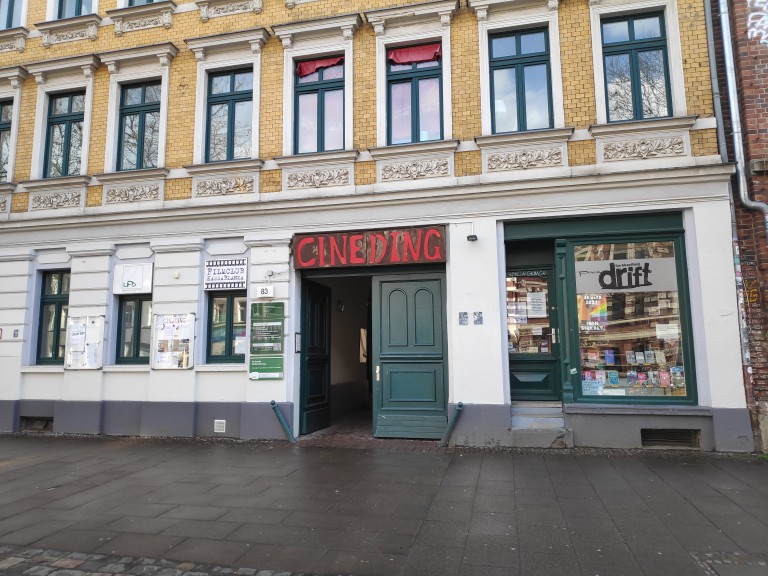

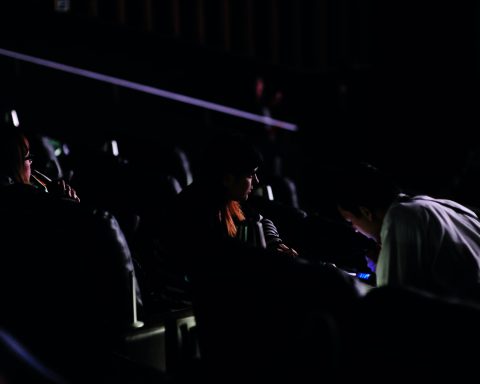
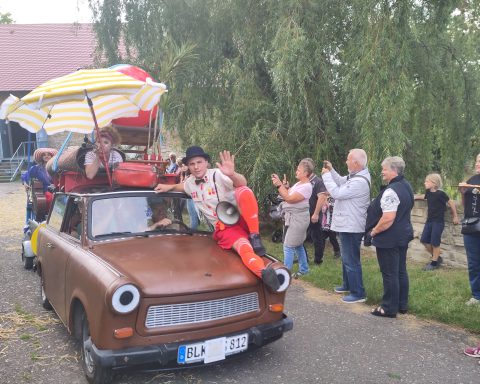

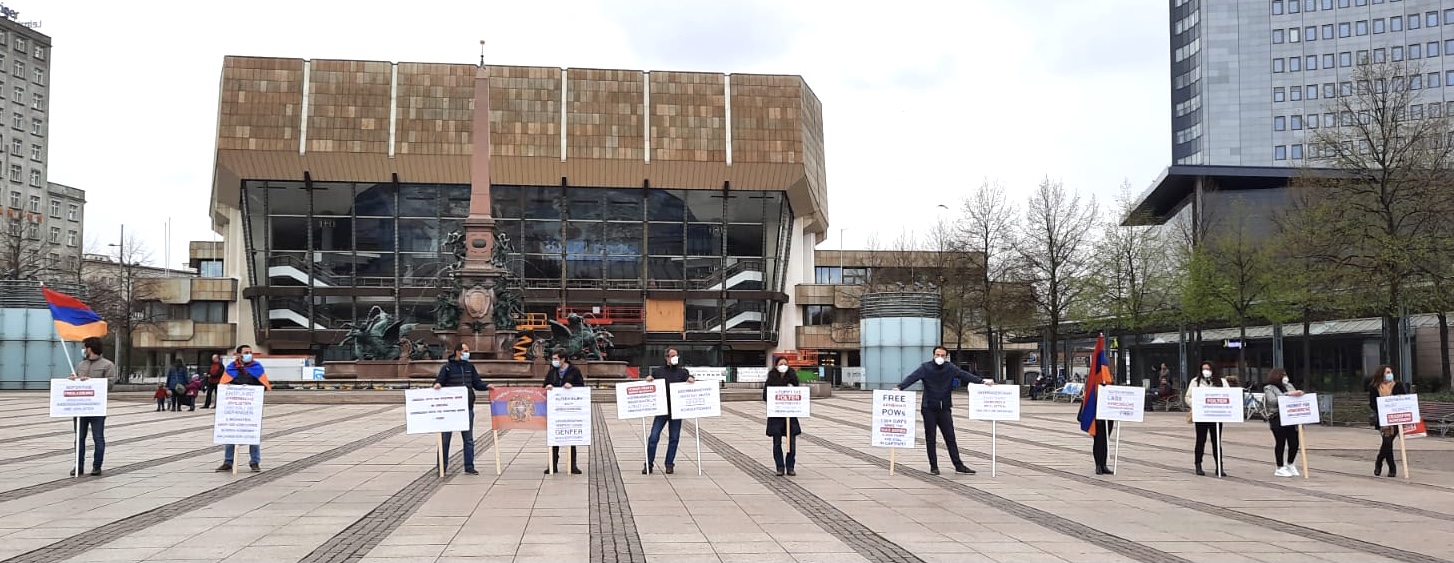


![Wine & Paint event on 9 Nov. 2024 at Felix Restaurant, Leipzig. Photo: Florian Reime (@reime.visuals] / Wine & Paint Leipzig](https://leipglo.com/wp-content/uploads/2024/12/pixelcut-export-e1733056018933-480x384.jpeg)
